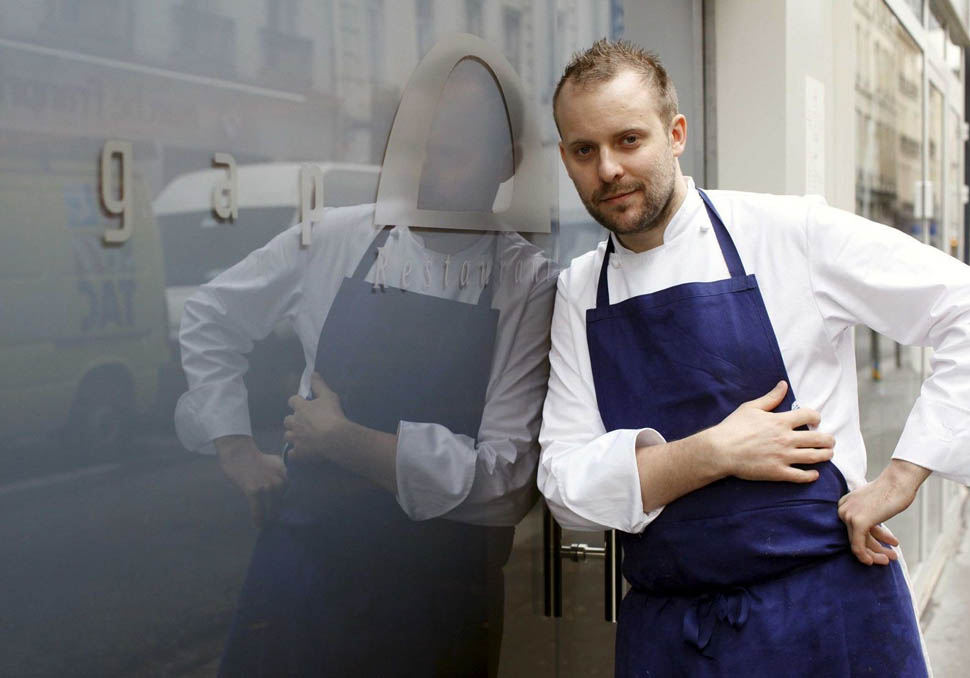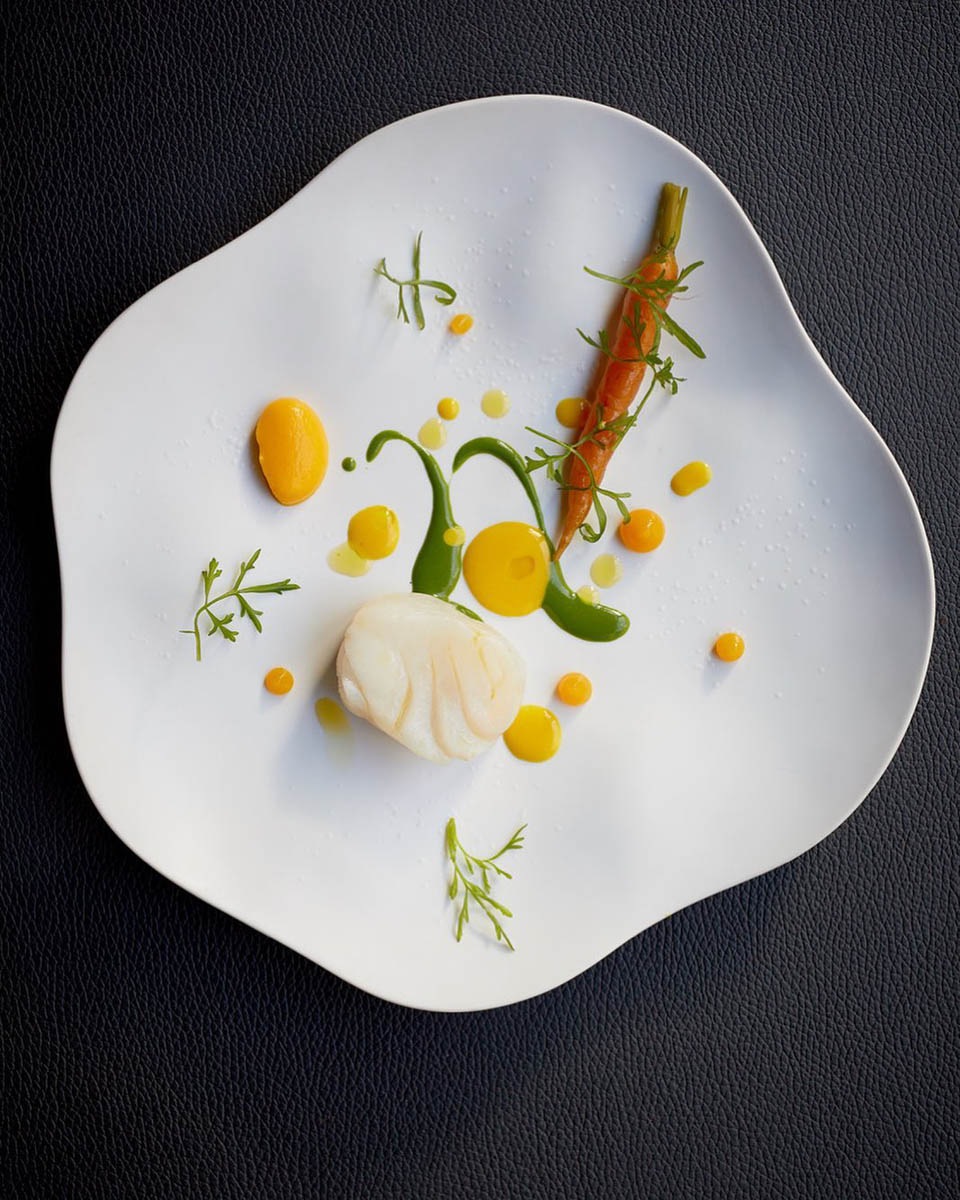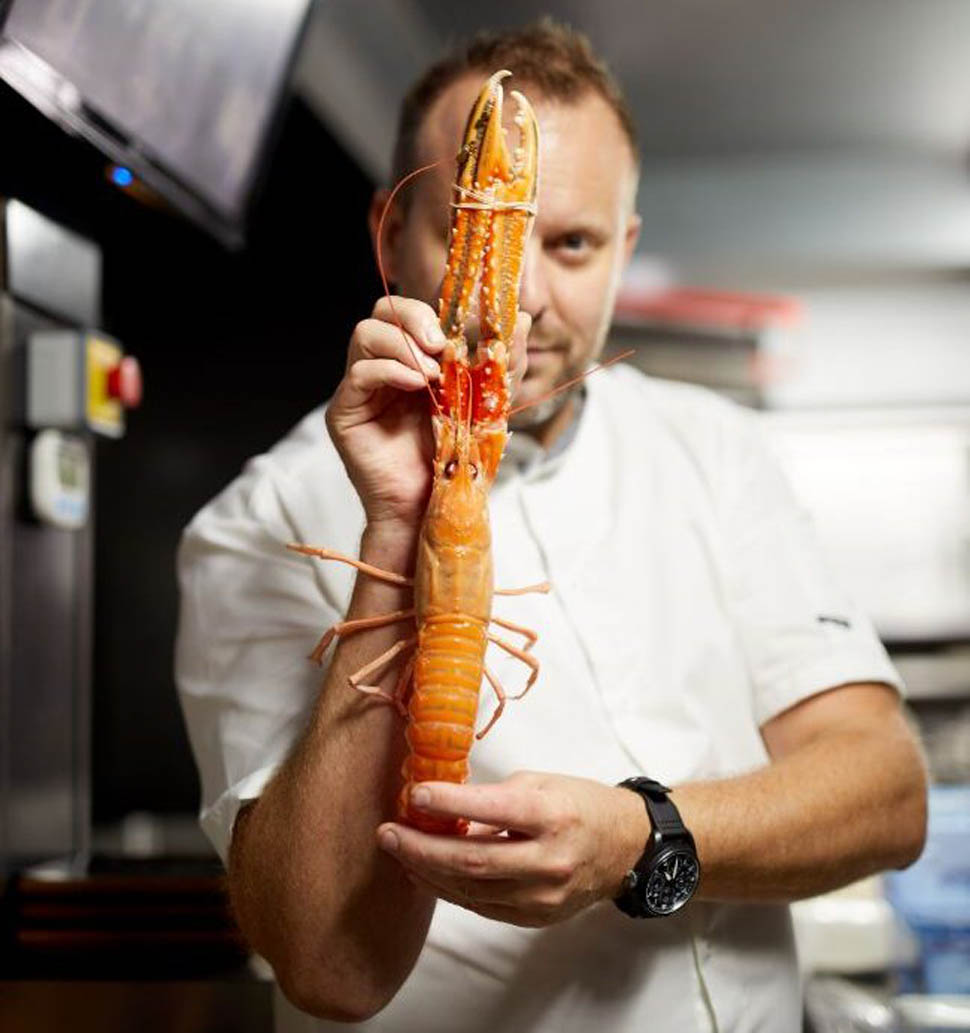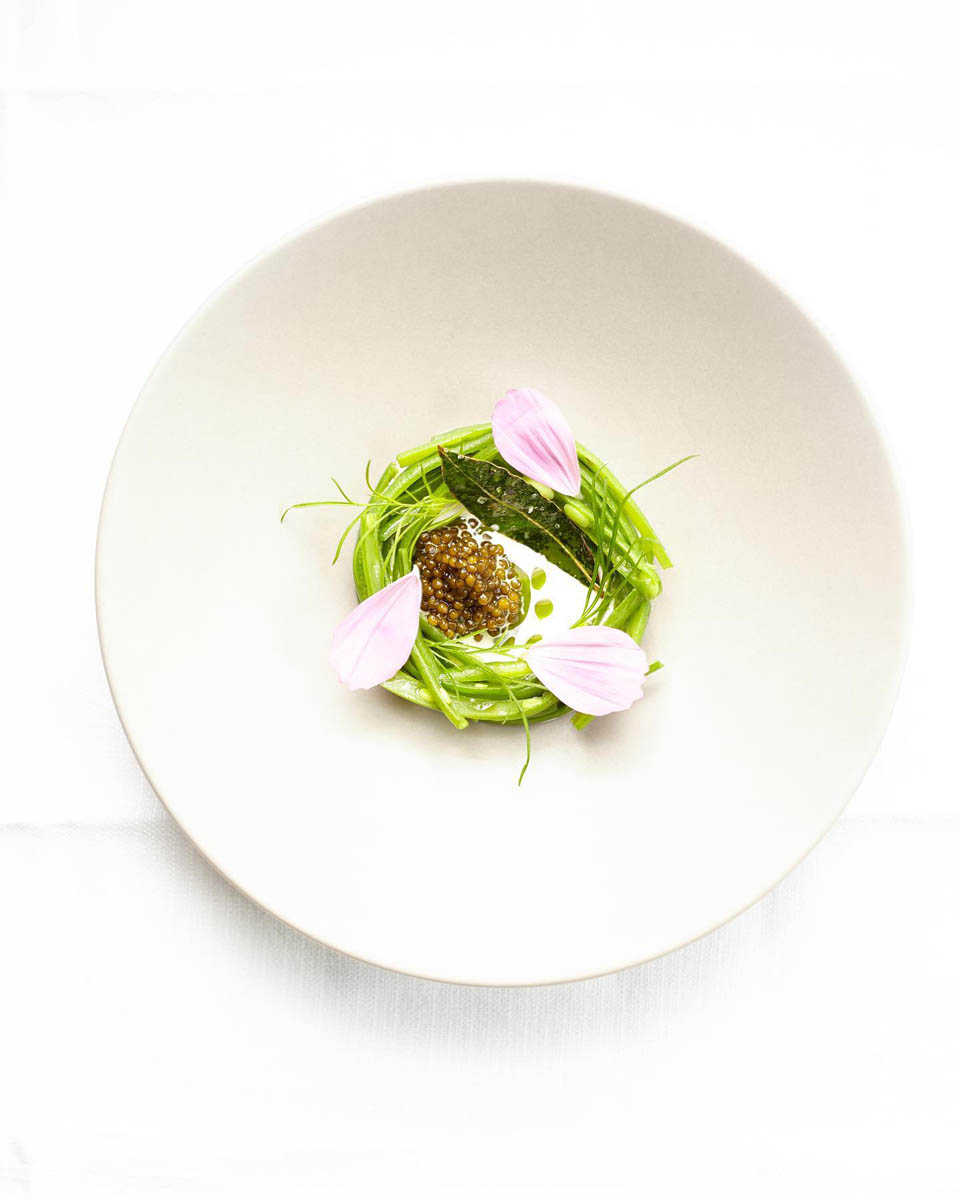The chef as one of us. David Toutain tries to shake off stereotypes, co-authoring a book with Paris Saint-Germain. But at work, he remains strict: "In prestigious establishments, you learn discipline: today, I train the chefs of tomorrow."
The news
David Toutain, chef of the eponymous restaurant in Paris, has always been considered a clear talent, if not simply destined. He holds two red stars and one green, a rather unusual case for a metropolis. He considers nature as his main source of inspiration and has always collaborated with small producers and artisans who respect the environment, aiming to minimize waste and share good practices with the team. Vegetables take center stage on his tables, but he is also working on alcohol-free pairings. It's no coincidence that he learned from the master, Alain Passard, a nature connoisseur. "Prioritizing quality over quantity, for proteins as well as alcohol: as chefs, we must be carriers of all this, connecting producers and customers, setting an example personally," he passionately emphasizes in an interview with actuParis.

"I think we need to be close to people. We have to break down this inaccessible image of Michelin-starred chefs. On weekends, I eat simple things," he continues. He also tried by co-authoring the recipe book À Table avec le Paris Saint-Germain with a nutritionist and players, including Kylian Mbappé with his Caesar salad. A fan of the club, he has been passionate about football since he was a child, like many of his guests.

Born in Normandy, during his training, Toutain often packed his bags, moving between the United States and Spain, until he recently opened a restaurant in Hong Kong. Travel is therefore a prominent theme in his dishes, a way to delve into biographies and civilizations. "Entering someone's childhood through food means traversing their private life and original culture. Ultimately, what interests me is the history of people through cuisine. Eating tacos in the center of Mexico City, for example, is magnificent because it's about culture. The image of a mother jealousy preserving her grandmother's recipes fascinates me."

He likes to talk about "tiny pleasures," such as fishing and cooking for his family, creating memories (which supports the initial idea of the person beyond the character). And then, for his wife Thaï, a cook like him, who chose to work for the restaurant "in the shadows," while playing the role of a mother. But at work, he can be very demanding. "It's something you acquire by passing through prestigious establishments: you learn concentration, but that doesn't mean being unhappy. Every day there's a new clientele to understand, there are the whims of nature. You have to constantly reassess. Me first. And it's a matter of transmission: today, I train the chefs of tomorrow."












